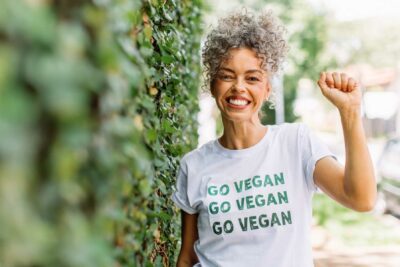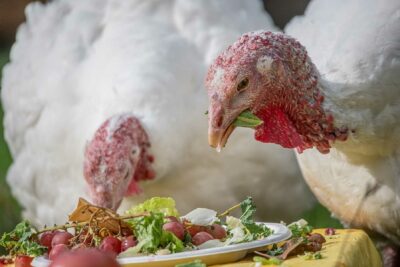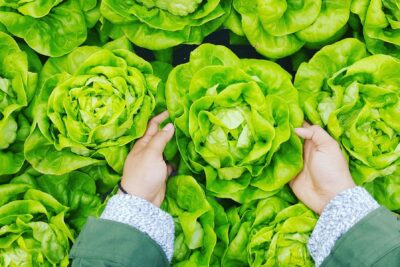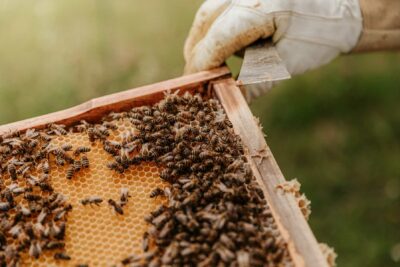Veganism may be a relatively modern notion but its roots are ancient and global. So, who kicked off this powerful social justice movement, and what were their reasons?
What Is Veganism?
Veganism is a way of living that excludes as far as is possible and practical all animal products. That means vegans eat plant-based foods and wear clothes that do not come from animals, such as fur, leather, silk, and feathers. It also means choosing cruelty-free household products and toiletries. WAnd while veganism is a fairly recent concept designed to best protect animals, the history of eating plant-based food and refraining from harming animals unnecessarily goes back millenia.
Why Did People Start Going Vegan?
Different cultures in different eras would have eaten many different things but research consistently shows that our ancestors were not surviving on a diet of wooly mammoth, despite what the movies tell us! For our forebears, there was no decision to “go vegan”. They ate what was seasonal, safe, and available to them, and often, that was plants.
The choice to become vegan is a much more recent development because food choices are a recent development. Today, most of us do have options about what we eat and our decisions are influenced by many factors, including what is seasonal, available and affordable, what we like, what our family and cultures eat, the time of day, how much time we have to prepare something, and what is being marketed to us. For an increasing number of us, there are additional factors feeding into that decision-making process, too, such as the impact specific foods have on animals, the planet, our health, and other people.
Today, people choose to become vegan for a variety of reasons but most common is that they do not want to cause suffering to animals, they want to reduce their climate impact and protect the planet, or they want to improve their health.
Who Were the First Vegans?
How far back should we go?! The diets of our ancestors, wherever they lived, may not have been vegan as we know that concept today, but in many cases they were plant-based. And the clues of early humans’ diets lie in our own bodies which, like those of other primates, is perfectly adapted for plant matter, such as fruits and leaves, along with the occasional lizard. Says Rob Dunn, biologist at North Carolina State University and author of this very interesting article: “the truth is, for most of the last twenty million years of the evolution of our bodies, through most of the big changes, we were eating fruit, nuts, leaves and the occasional bit of insect, frog, bird or mouse. While some of us might do well with milk, some might do better than others with starch and some might do better or worse with alcohol, we all have the basic machinery to get fruity or nutty without trouble.”
Archaeologist Dr. Richard Leakey further explains the reasons for our ancestors’ plant-based predominance: “You can’t tear flesh by hand, you can’t tear hide by hand, and we wouldn’t have been able to deal with the food sources that required those large canines.” His theory suggests that humans turned to animal flesh out of necessity when there were shortages of plant-based staples, but the chances are, many of us come from a largely plant-based ancestral line.
Historical Vegan Cultures
So, when did being plant-based become a choice that was made out of an ethical principle? Much of the information about ancient cultures and belief systems has been lost, but we do have some hints about who some of the earliest vegans might have been.
The Egyptian Pharaoh Akhenaten banned animal sacrifice as he thought it was a sin to take any life given by the Aten god. Akhenaten lived around 1300 BC and he clearly believed in the vegan ethos of causing no harm to animals.
And then there was Parshvanatha, also known as Parsva, a Jain who lived in India around 800 BCE. He taught ahimsa, or non-violence, and was renowned for rescuing a serpent who had become trapped in a log that was burning in a fire. Was he vegan? We don’t know for sure, but he certainly sounds like he might have been.
And then there was the Japanese Emperor Tenmu who banned the consumption of meat from cows, horses, dogs, chickens and monkeys, and this ruling led to a ban on eating meat in Japan that lasted 12 centuries.
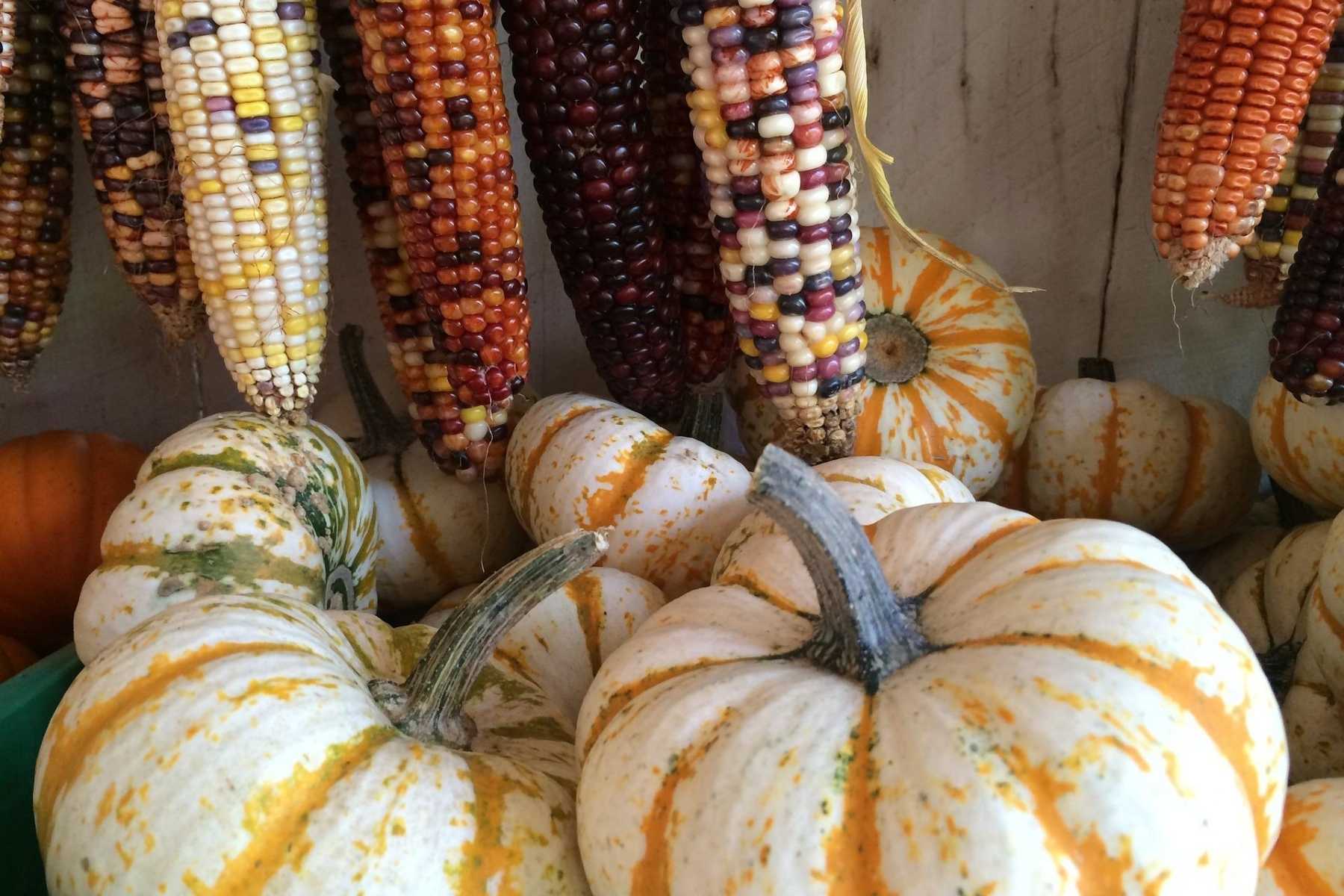
Indigenous Vegan Cultures
Many indigenous cultures ate plant-based, even if they were not fully vegan as we define that word today. One example is the Choctaw Nation. Its people were largely vegetarian and chose to construct homes from wood, mud, bark and cane instead of animal skins. According to Choctaw researcher Rita Laws, the Choctaw rarely consumed meat prior to 1492. After Europeans invaded, Indigenous people began moving toward animal-based diets while the colonizers began moving toward vegetables. She writes: “The principal food, eaten daily from earthen pots, was a vegetarian stew containing corn, pumpkin and beans. The bread was made from corn and acorns. Other common favorites were roasted corn and corn porridge… Even the clothing was plant based, artistically embroidered dresses for the women and cotton breeches for the men.”
Eating a plant-based diet was also commonplace in ancient Greece, where strict vegetarianism was called “abstinence from beings with a soul.” Pythagoras (570-495 BC) was an influential vegetarian who voiced his objection to the mistreatment of animals. The Roman poet Ovid (43BC-18AD) depicted Pythagoras as saying: “Alas, what wickedness to swallow flesh into our own flesh, to fatten our greedy bodies by cramming in other bodies, to have one living creature fed by the death of another!” Today, the Greek Orthodox faith still calls on its followers to adopt a vegan diet during the Lenten fasting period.
And then there is the isolated matriarchal Brokpa society of Ladakh in Kashmir. According to the Sinchi Foundation: “The Brokpa believe the world is divided in three spheres, a white and pure one—which is the realm of the gods, the red one—which is the realm of the people, and a blue one—the lower realm of the water spirits. The three worlds are connected by a universal tree which grows from top to bottom and makes it possible to communicate between them. To reach the realm of the gods in this earthly life, it is encouraged to avoid any kind of pollution and consume only off the ground, which also makes them advent vegetarians (and sometimes even vegans) and amazing agrarians of organic fruits, oats and vegetables. Brokpa are well-known for their barley, potatoes, apricot, walnut and grape produce, and the art of making red and white wine, leaving cows-milk strictly out of their diet for many centuries.”
History of Veganism in India
Vegetarianism and veganism in India have their deep roots in religion. Hinduism, Buddhism, and Jainism all teach the concept of ahimsa or non-violence towards all living beings. One of the most influential figures was the 24th Tirthankar, Vardhaman Mahavira, who lived almost 2,500 years ago. He considered men and women to be spiritual equals and encouraged participation from all communities in India, and absolutely central to his teachings was ahimsa.
Mahavira’s contemporary was Buddha, another proponent of ahimsa but he made an exception to allow monks to accept meat given as alms. Many Hindu Brahmins also adopted vegetarianism, and the meat-free diet spread as traders traveled. Today, India has the largest number of vegetarians in the world, and the rise of veganism is growing quickly especially among younger city dwellers.
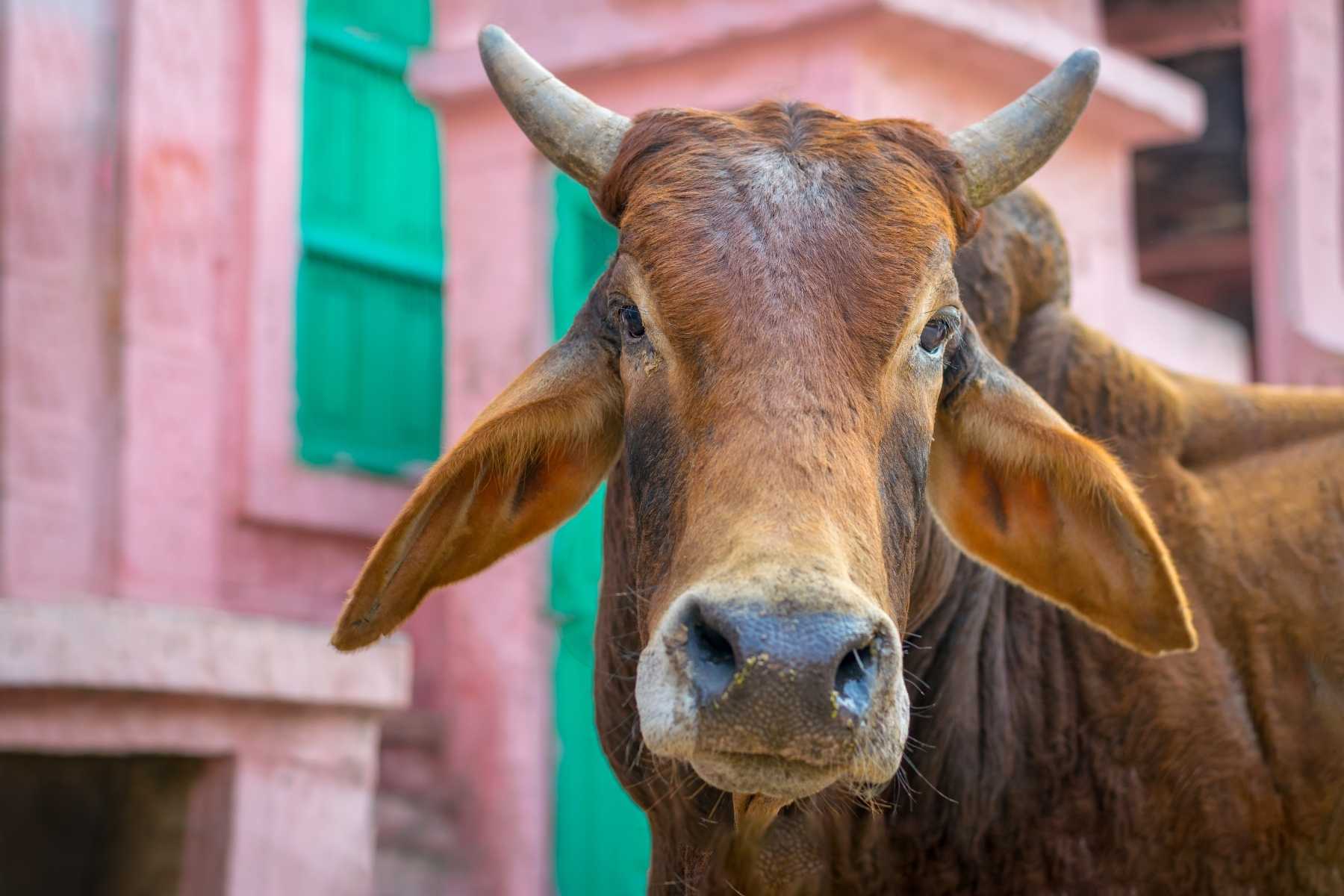
Modern Day Vegans
Modern veganism is not a religion, although some followers of each of the largest faiths do make veganism a central part of their devotion. People today have many varied reasons for becoming vegan, including: to boycott the suffering and life-taking involved in the production of meat, milk, and eggs; to better protect their own health and that of the wider public; to reduce their climate impact; to preserve the world’s natural places; protect wildlife; and to show solidarity with people around the world.
Because it is such a compassionate, just, and fair way of eating, veganism is growing exponentially in every country in the world, and that means there is no one type of vegan. We all come to it from our own perspectives, for our own reasons, and eating the foods from our own communities and traditions. It is a beautifully diverse global community, and all are welcome.
Why Did Donald Watson Create the Vegan Diet?
Donald Watson didn’t create veganism, but in the 1940s he did name it and for him, it was all about ending the deliberate harming of animals. It was to be another five years, however, before a definition of “veganism” was drafted. It defined the goal of veganism as “to seek an end to the use of animals by man for food, commodities, work, hunting, vivisection, and by all other uses involving exploitation of animal life by man.”
That definition has grown and changed over the years, and today The Vegan Society definition reads:
“Veganism is a philosophy and way of living which seeks to exclude—as far as is possible and practicable—all forms of exploitation of, and cruelty to, animals for food, clothing or any other purpose; and by extension, promotes the development and use of animal-free alternatives for the benefit of animals, humans and the environment. In dietary terms it denotes the practice of dispensing with all products derived wholly or partly from animals.”
As you can see, causing no harm to animals, or ahimsa, remains central to veganism, and diet is just one aspect of that compassionate practice.
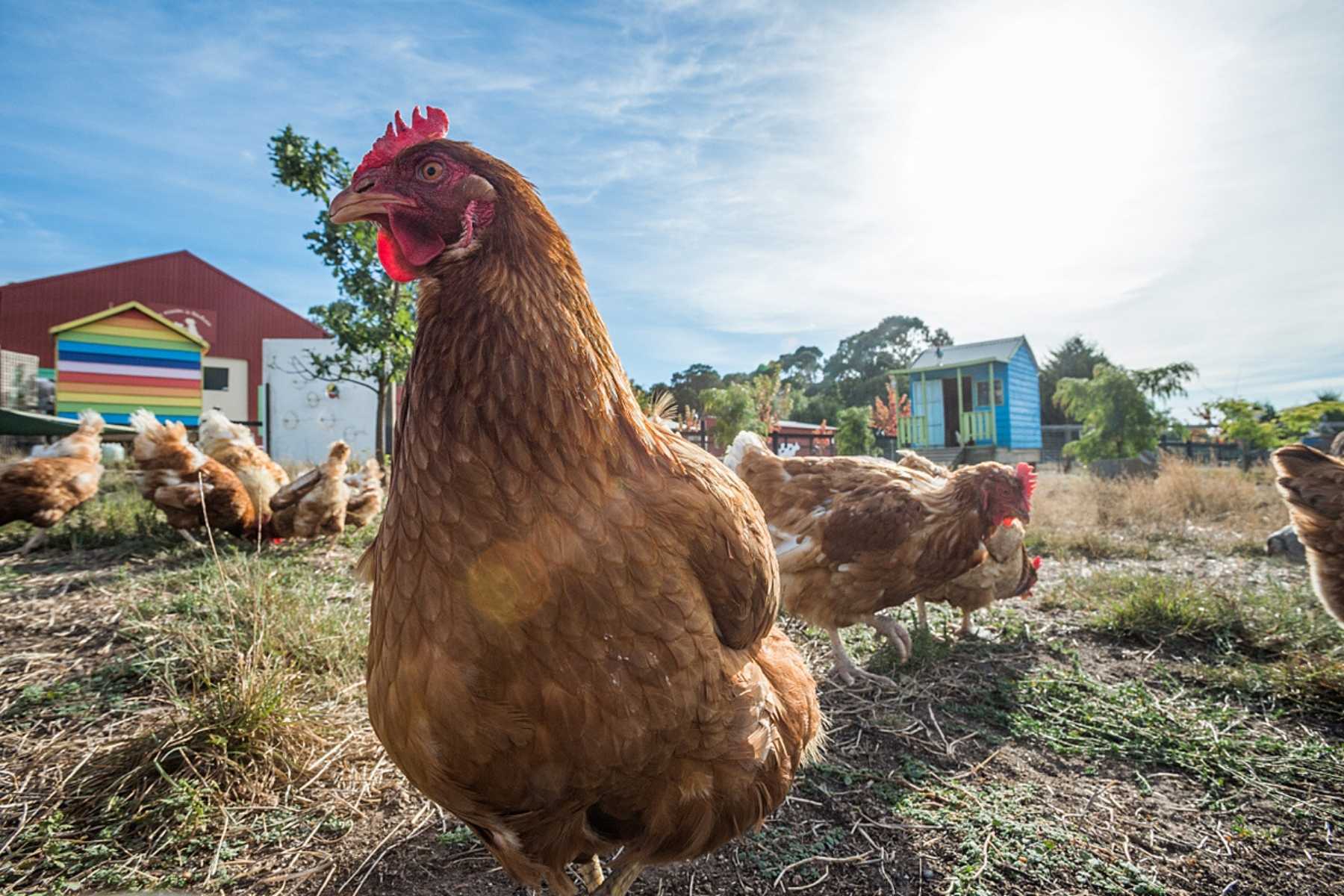
The Future of Veganism
Veganism is a way of eating that suits just about everyone who believes in something! For those who wish to protect their families and communities, care for our planet, share the Earth’s resources equitably, protect wildlife, or ensure they cause no unnecessary suffering to our fellow animals, veganism provides the best option. And since most people believe in one or more of these, we can be sure that veganism will continue to grow and grow.
But there is another more pressing reason why veganism is the diet of the future, and that is the future of the Earth may actually depend on us becoming vegan. Animal agriculture is behind many of the most damaging environmental crises, from climate breakdown and water pollution to deforestation and desertification. Credible institutions like Oxford University, Harvard, and the United Nations are all saying the same thing: To preserve a healthy, habitable planet, we need to eat plant-based.
Conclusion
Many people worldwide were brought up in the vegetarian or vegan tradition, while many more have adopted it out of choice. For some, that decision is made early in childhood as they connect the animals they love with the meat on their plate. For others, it may come later, for health reasons, or as they become more aware of the growing environmental catastrophes caused in large part by our consumption of meat, milk, and eggs.
But whether we were born into it or adopt it later, veganism is adaptable and can suit almost all people of all backgrounds, ages, and cultures.
